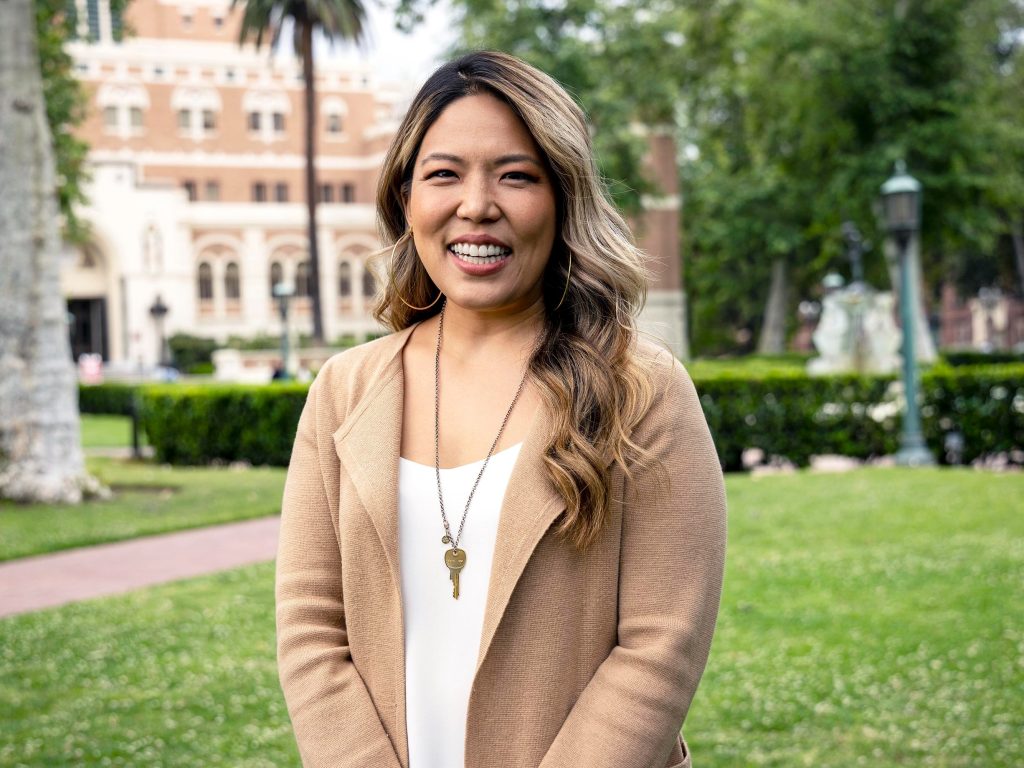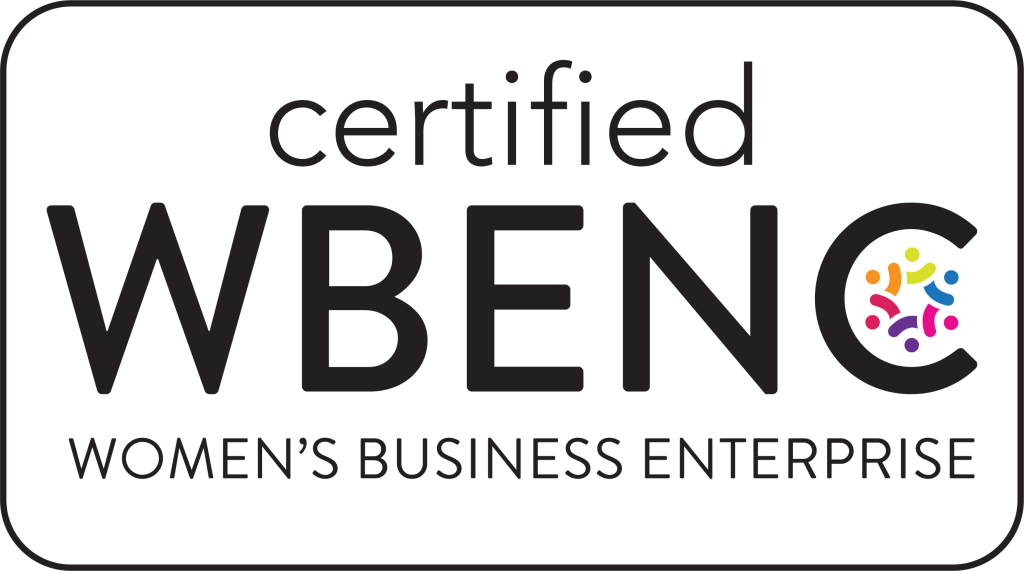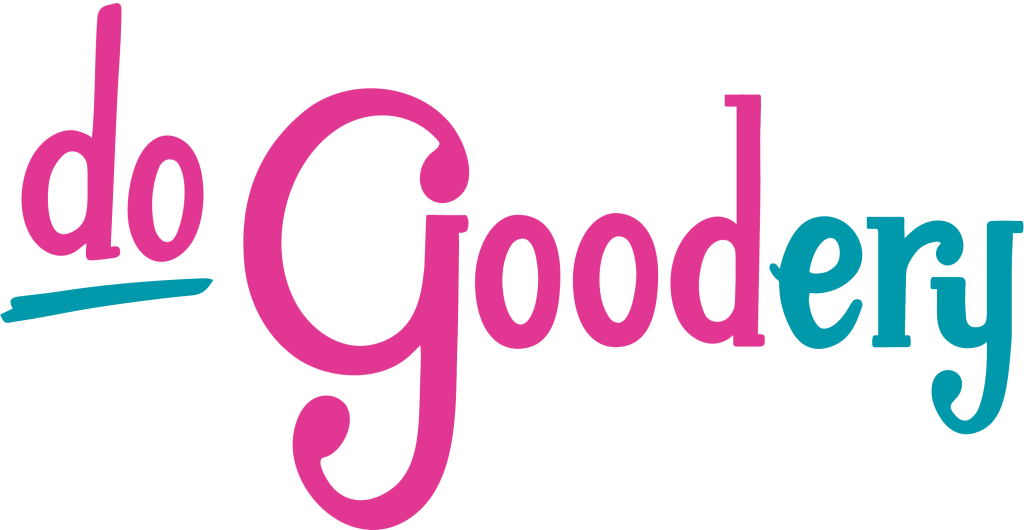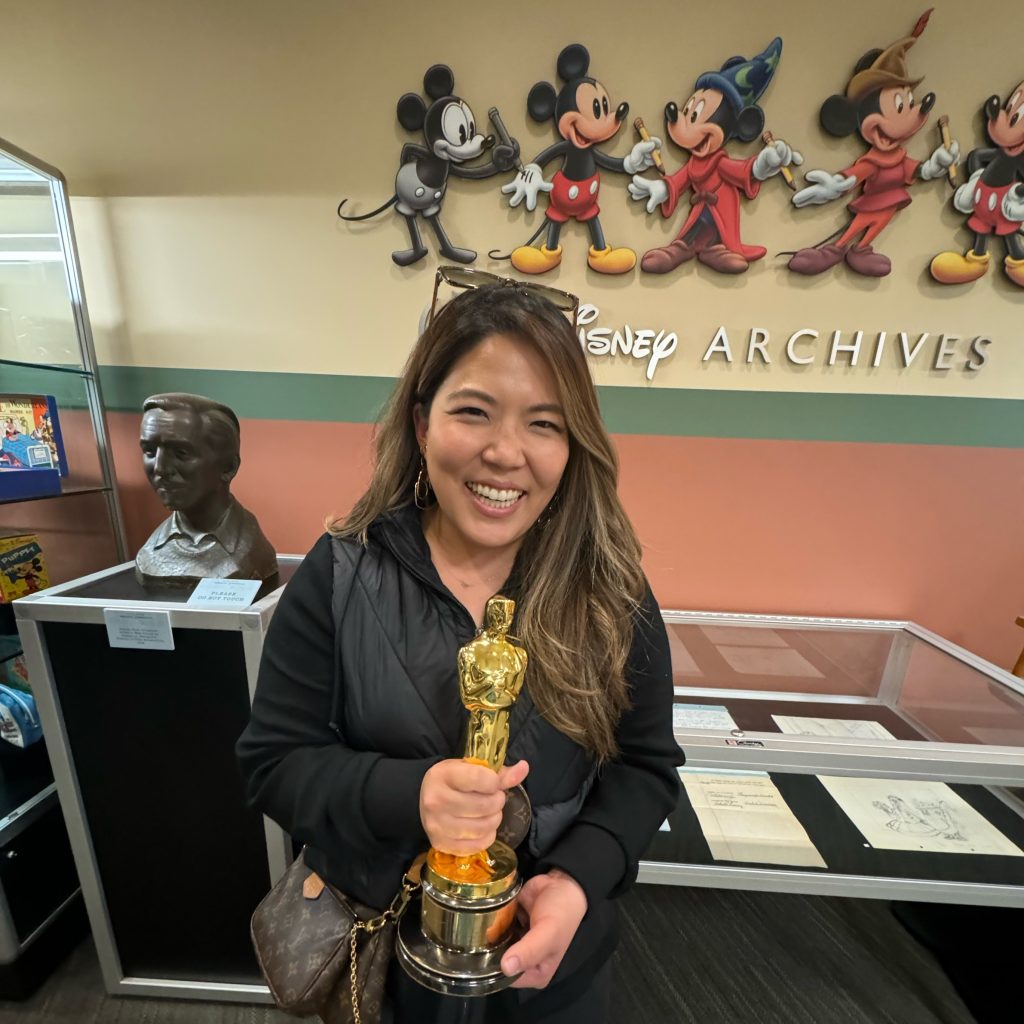
Our Interview with Sally Chan
Hey May!
In addition to Jewish-American Heritage Month and Mental Health Awareness Month, May is also Asian-American, Native Hawaiian, and Pacific Islander Heritage Month. We sat down with Sally Chan, a seasoned Corporate Social Responsibility (CSR) professional with decades of experience working with corporations in social impact.
Let’s learn more about Sally, her impressive career journey, and her experience as an Asian-American!
DoGoodery: Tell us a little bit about yourself, your background, and what made you so passionate about working in Corporate Social Responsibility (CSR)?
Sally: I’ll start with the identity markers that are truest to me. I’m a native Angeleno. I know there aren’t many of us [laughs]. I’m a woman of faith and a mom to the two most amazing boys. I’ve been married to my hubby (and BFF) for almost a decade now and am a proud military spouse.
When you look at my resume, it probably looks very linear, like I started in CSR and stayed for 24 years. While the work has been anything but linear or “traditional,” I think the longevity points to a deep love and passion for this work. Anyone who started working in CSR 20+ years ago probably didn’t realize there’d even be an option to have a career working in social impact, especially within a corporation or major industries. In the past, pursuing social impact work might involve joining the Peace Corps, signing up to do volunteer work on the weekends, or serving on a nonprofit board. The fact that a practice like CSR formalized during a time when I was looking for a purpose-driven career is one of the biggest blessings of my professional life. My parents always instilled in me the belief that the biggest blessings grow from giving back and serving and I witnessed them do this faithfully at church, school, and in the community. So, from a core value standpoint, I knew that my greatest joys would come from serving others.
I entered CSR at a time when people were asking “should corporations really be held responsible for the impact they have on society?” Now, it’s an obvious yes. But there was a time when this issue was up for debate and this line of questioning created the pathway into this line of work.
DoGoodery: Do you remember a moment that sparked your interest in this line of work? What was the moment when it was clear that this would be your future?
Sally: I always say clarity comes from seasons of wrestling with (and healing from) your doubts and fears. I remember being in college pursuing my business degree. Many of my peers were sharing that they “couldn’t wait to go into investment banking, make lots of money, and buy a Ferrari with cash.” While I couldn’t really connect to these intrinsic motivators, I went along with it. For a while, I thought I would become an accountant. I was sold on the practicality of the job with its great fringe benefits. I rationalized that I would just have to find time on the weekends to do the work I really love – volunteering and helping others.
Interestingly, it was around that time when there was increased pressure on public companies to be more transparent about their supply chain – disclosing where t-shirts and branded merchandise were being made – and I was fortunate to be hired as an intern at Disney working in a department focused on sourcing practices and its impact on human rights.
At the ripe age of 19, I had the standard duties of filing and inputting information into a database and didn’t fully understand the scope of the department, though I knew it was important work. I had been given the opportunity to synthesize data from hundreds of labor audit reports from global manufacturing factories to understand how sourcing decisions impacted child labor, human trafficking – the issues were so layered and complex. I remember one meeting where the executive team met with members from the State Department to share the Company’s best practices in supply chain management and approach to addressing human trafficking. For context, there was a dominant trend for companies to “cut and run” from factories who were exposed for poor working conditions. While the decision to leave factories that fail to meet labor standards and codes of conducts was understandable, this action often led to unintended consequences – leaving many workers, primarily women, to fend for themselves. These workers would no longer be able to send money back home to their families and at times leave them vulnerable to human trafficking to make ends meet. And that was the moment when I wanted to work at a company to address the impact that business decisions have on so many critical social issues.
DoGoodery: What cultural influences/identities have you experienced throughout your life? Have you felt a sense of belonging to a particular ethnicity or culture?
Sally: I’m of Korean descent. My husband is of Chinese descent. Both of us were born in America and are raising two boys whom we affectionately refer to as Ch-orean, (combining the Chinese and Korean cultures) and American. The kids (8 and 6) are very confused right now, but that’s okay [laughs].
I grew up in a community where I was probably one of six students in the entire school who identified as being Asian-American. I don’t recall feeling othered because of this but was still acutely aware that I was different. I recognize that for many people, being different, especially during your childhood years can result in a negative experience and you might distance yourself from the identity marker that you believe separates you from others. I was fortunate not to experience this at a younger age. Throughout my childhood, I had friends from different ethnic backgrounds and recall celebrating what made each of us unique. It was when I went off to college, in fact, where the separation or grouping based on race and ethnicity started to feel more palpable. Suddenly, my friendship groups were becoming more homogenous, and this was so different from my upbringing.
I’m blessed that my parents always instilled a cultural pride in being Korean and American, so I never shied away from one or the other. Of course, I was not immune to the occasional questions when I took Korean food to school and someone would ask, “What is that? Why does it smell like that?” But now when people find out that I’m Korean, they’re quick to comment, “Ooh, I love BTS!” As a young adult, I remember being asked, “Are you from North or South Korea? Where are you really from? Do you eat dogs?” Nowadays, any reference to my Korean heritage evokes comments about K-beauty, K-dramas, etc. These statements are in a way how I measure social progress [laughs]. Of course, I’m saying this jokingly, but the change in the types of comments I receive tells me that there has been more integration and acceptance of different cultural influences being mixed into the American identity.
Like many of us, I had a lot of time to reflect during the pandemic. I was kind of obsessing about the identity marker of being Asian-American (Asian, hyphen, American), and the hyphen kept looking like a minus. And I was like, well, doesn’t that explain so much? Historically, because of this prefix or precursor, being Asian, I’m considered less (hyphen/minus) American. Perhaps if we changed the minus to a plus, Asian+American, would we as Americans be more open to the realization that America is made greater, added to (plus) by these preceding identity markers?
DoGoodery: How have your cultural upbringing and your current cultural identities influenced your ideas and values?
Sally: What I appreciate most about my Korean culture is that there is less emphasis on the individual or “I.” It’s more common to use words like “we” and “our” (woori) in the Korean language – especially in reference to family, country, home, etc. I like that.
I love having multiple identity markers because it’s like having a full set in your golf club bag or toolbox. I have all these different clubs or tools that I’m able to use in my daily life. In certain situations, the American value of “I” is important, and I’m able to lean into those situations where leading with “I” makes the most sense. In other scenarios, the “we” or collective mentality is especially rewarding and helps cultivate a greater sense of belonging. I also have a huge respect for elders, which is influenced by my Korean culture. I know some see this Eastern value as a potential weakness, especially in the American business landscape, but I believe that it’s fruitful to have a healthy respect for the wisdom that those with more life experience may have. I also don’t think it’s a blanket “just because you’re older than me, you’ve earned my respect either.”
It’s a delicate dance and the beauty of belonging to so many different identity groups is that you get to draw upon the best from those worlds and apply what works for you.
DoGoodery: How do you balance your cultural identity and values with your professional identity?
Sally: In late 2019, I partnered with two friends to interview 30 AAPI women to ask about their upbringing and how it has influenced their professional careers in America. What was interesting in our findings was that even though the demographic profile of our interviewees was wide-ranging, almost all our respondents shared that their professional lives mimicked the monolithic narrative about Asian women being either quiet/submissive or cutthroat in the workplace. There was one exception in our group of 30, so we tried to pinpoint what made her experience different.
Our interviewee identified as Filipina and shared that she was raised to be extremely proud of her cultural background. Her parents, family, and church community cultivated a deep love for her Filipino culture and any chance she had to share it, she did. After college, our interviewee became a pharmaceutical rep and shared that there weren’t a lot of other Filipinos or Asian-Americans on the team. One day, she took her colleagues to a hole in the wall Filipino restaurant saying, “You have not had good food until you’ve tried this place.” When taking her team to a new lunch spot, she didn’t attempt to downplay or even explain the cuisine. She didn’t prep them in advance for what they might see or taste. She didn’t apologize for the experience or try to pre-empt any possible negative reactions. She was convinced it was the best food and was motivated to share it. Period.
We really learned a lot from our interviewee’s mindset and approach to embracing her cultural identity marker. In her case, being seen as “different” in early childhood was a very positive experience and this carried through into her professional life. Our interviewee wanted others to experience what she found so incredibly amazing about her culture and upbringing. I firmly believe this is the way we need to approach diversity and inclusion. We often approach the topic with reticence or deprecation, “Oh, you might not like it…it might be a little weird.” But when you couch it this way, it almost perpetuates the cultural distance and lack of appreciation.
After this informal study and our findings, I’ve been relearning how I want to show up. I’ve adopted this interviewee’s mindset to extend an invitation to others to experience and learn aspects of my culture. If someone is open to it – great! it’s here for you. If you don’t, it’s not meant for you. This renewed mindset is not about defiance or opposition. It stems from having such a deep-rooted cultural pride that I want to share it with those open to the invitation.
DoGoodery: What advice would you give other Asian-Americans starting out on their own journeys, career or personal?
Sally: In this season, I am fully acknowledging that I am recovering and healing from many decades of living in survival mode and with an “achievement is the key to security” mentality. What I’m telling myself today (and perhaps even a younger version of me) is to give space to rediscover who I am and not who I thought I was supposed to be. Sometimes, in our pursuit of survival and security, we form such a rigid structure and timeline for our life, which often robs us of the very personal freedom and abundance we’re working towards. In the end, having the safe and ample space to explore with unabashed curiosity all the unique aspects of yourself is what will help you navigate through the joys and the trials. The more you can be in tune with self and who you were designed to be, the more it will bless you along the journey.
Stay in the loop!
DoGoodery LLC
1370 N St. Andrews Pl,
Suite B19
Los Angeles, CA
90028
hello@dogoodery.com


